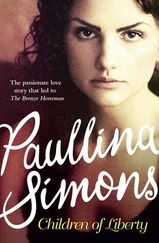Children Don’t Play Here Anymore
Paul Finch

Copyright Copyright Children Don’t Play Here Anymore About the Author By the Same Author About the Publisher
Published by Avon
An imprint of HarperCollins Publishers
1 London Bridge Street
London SE1 9GF
www.harpercollins.co.uk
This ebook edition published by HarperCollins Publishers 2016
First published in hardback in Quietly Now: A Tribute to Charles L. Grant by Borderlands Press, 2004
Copyright © Paul Finch 2016
Cover design © Debbie Clement 2016
Paul Finch asserts the moral right to be identified as the author of this work.
A catalogue copy of this book is available from the British Library.
This novel is entirely a work of fiction. The names, characters and incidents portrayed in it are the work of the author’s imagination. Any resemblance to actual persons, living or dead, events or localities is entirely coincidental.
All rights reserved under International and Pan-American Copyright Conventions. By payment of the required fees, you have been granted the non-exclusive, non-transferable right to access and read the text of this e-book on screen. No part of this text may be reproduced, transmitted, down-loaded, decompiled, reverse engineered, or stored in or introduced into any information storage and retrieval system, in any form or by any means, whether electronic or mechanical, now known or hereinafter invented, without the express written permission of HarperCollins.
Ebook Edition © January 2016 ISBN: 9780008173715
Version: 2015-12-18
Contents
Cover
Title Page Children Don’t Play Here Anymore Paul Finch
Copyright Copyright Copyright Children Don’t Play Here Anymore About the Author By the Same Author About the Publisher Published by Avon An imprint of HarperCollins Publishers 1 London Bridge Street London SE1 9GF www.harpercollins.co.uk This ebook edition published by HarperCollins Publishers 2016 First published in hardback in Quietly Now: A Tribute to Charles L. Grant by Borderlands Press, 2004 Copyright © Paul Finch 2016 Cover design © Debbie Clement 2016 Paul Finch asserts the moral right to be identified as the author of this work. A catalogue copy of this book is available from the British Library. This novel is entirely a work of fiction. The names, characters and incidents portrayed in it are the work of the author’s imagination. Any resemblance to actual persons, living or dead, events or localities is entirely coincidental. All rights reserved under International and Pan-American Copyright Conventions. By payment of the required fees, you have been granted the non-exclusive, non-transferable right to access and read the text of this e-book on screen. No part of this text may be reproduced, transmitted, down-loaded, decompiled, reverse engineered, or stored in or introduced into any information storage and retrieval system, in any form or by any means, whether electronic or mechanical, now known or hereinafter invented, without the express written permission of HarperCollins. Ebook Edition © January 2016 ISBN: 9780008173715 Version: 2015-12-18
Children Don’t Play Here Anymore
About the Author
By the Same Author
About the Publisher
Geoff slows his Chrysler to a halt on the road called Woodcock Close.
It is a cul-de-sac, as its name suggests, with a turning circle at the end and detached middle-class houses at regular intervals along its western side. Opposite these, on the east, the ground flows away downhill, a rough uncultivated pasture of brambles, ragwort and rich, thick meadow-grass. At the bottom, perhaps two hundred yards down from Woodcock Close, a dense stand of trees encloses a woodland pond. Beyond this there is a fenced-off paddock, which is periodically used for exercising dressage horses, though the stately residence to which it belongs lies half a mile to the north, only accessible from the paddock by a winding, unmade lane, and when you reach it, well concealed within a manicured spinney of sculpted evergreens; out of sight, out of mind – and thus unattached to the green and pleasant area which lies below Woodcock Close, tucked away like a secret garden.
While dreary enough in the winter – unless there is snow, in which case it becomes an exceptional sled and toboggan run – this small but hidden valley is a magical place at every other time of the year. It is no more than ten or twelve acres in total size, yet, in appearance at least, it is deep, secluded, mysterious – even though in reality it sits in the heart of the town’s sprawling suburbs, and is perhaps only five minutes’ walk from the ever-rumbling M6 motorway. Locals like us have always known it as ‘the Dell’, and probably every generation of our boys, going back to the pre-war years, waged their own battles down in its leafy heart, explored their own jungles, fought their own dinosaurs, built their own treehouses and swung on their own makeshift rope swings.
But that was then and this is now. And children don’t play in the Dell anymore.
“You know, Dad,” Geoff says as he parks, “… you don’t have to do this.”
“I know,” I reply.
“It’s not as if you’ve got anything to prove.”
I consider his words, which I hear every time we come here, and then take my stick from the footwell.
“You really expect to find something?” he asks. “After so long?”
I throw him a look – one of those short, shrewish looks I increasingly throw at people these days, and which I’ve recently made a mental note to try and clamp down on. “It … it isn’t that. You know it isn’t that.”
“I know.” His voice softens. He smiles sympathetically. “It’s become an annual pilgrimage, this, hasn’t it?”
“Something like that.” I button up my overcoat and climb from the car.
It is a cool day in early September. It would probably be warm if not for the gentle easterly breeze, which rustles like paper in the grass atop the Dell. The sun is mellow and misted in a pebble-blue sky, against which the foliage of the woodland below is bright emerald in colour, deep, succulent in texture.
“I wish you wouldn’t do it, though.” Geoff climbs out of the car on the other side. He nods at my stick and at my slight grimace of pain as I straighten my ever-creaking back. “I mean … you’re not going to be able to get up and down that hill much longer. Not at your age.”
I’m not sure whether this is an intended wind-up.
“I’m only sixty-seven, you know,” I remind him.
He doesn’t smile (which means that it isn’t a wind-up at all). “You’re a sixty-seven-year-old with chronic sciatica.”
“Well you’ll be around to help me, won’t you? If things get tough.” I use that terse, fatherly tone, which always suggests that you’re telling your son something rather than asking him.
He shakes his head as he slips his rolled-up newspaper from his jacket pocket. “Oh no … nooo, no. I’m not helping you punish yourself. No way.” He leans back against the car and starts to read. “I’ll happily give you a lift here … so long as you want to come, but that’s as far as it goes.”
I look at him for a long moment, before setting off down the slope.
He is a handsome enough man, my son; thirty-nine now and with a growing-up family of his own. He still looks youngish, though. His hair is jet-black and thickly layered on his scalp. He plays football at weekends and looks after himself, as his tall, spare physique suggests. People have always said he reminds them of me, but I don’t see that in him at all. If anything, his smooth, almost refined features resemble his mother’s, though the same certainly can’t be said for his attitude. Geoff has always been a man’s man, and I suppose by that I mean energetic, self-assured, cocky, confident and, generally speaking, a good provider for his wife and children. But at the same time he can be domineering, insensitive, occasionally boorish (when the drink is on him), and mildly selfish where the non-material needs of his loved ones are concerned. I can’t fault him for any of that, I suppose – the modern male isn’t nearly so progressive an animal as people like to imagine; the main difference between him and the old-fashioned model is that he makes a pretence of putting others first, but it only goes as far as that. Maybe, in that respect, Geoff is
Читать дальше
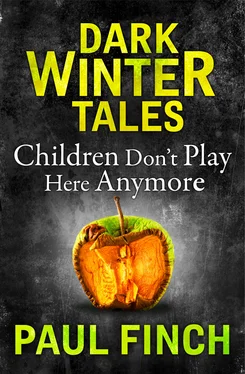


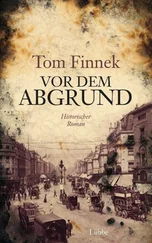

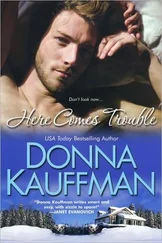
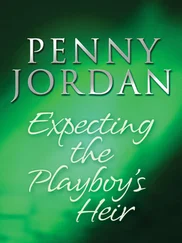

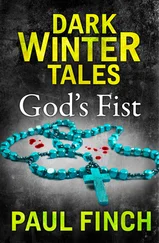
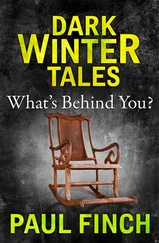
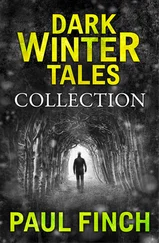

![Paul Finch - A Wanted Man [A PC Heckenburg Short Story]](/books/702381/paul-finch-a-wanted-man-a-pc-heckenburg-short-sto-thumb.webp)
